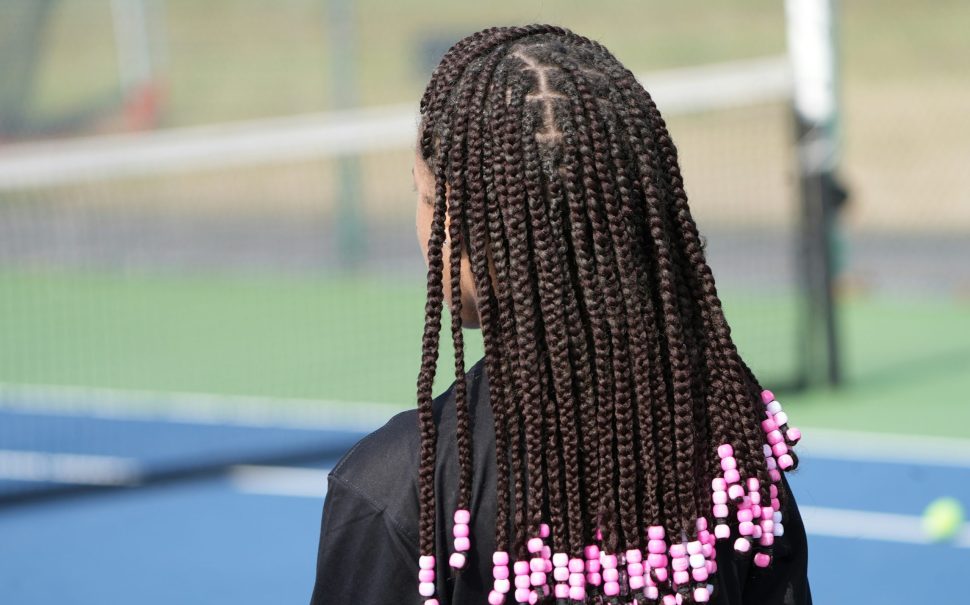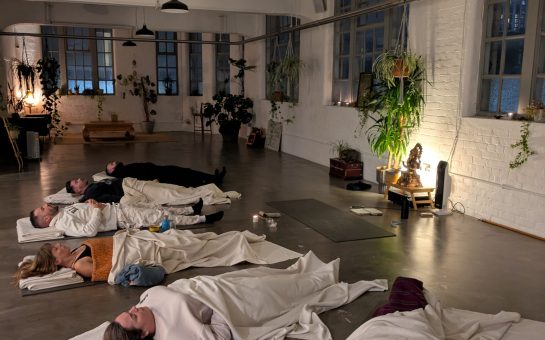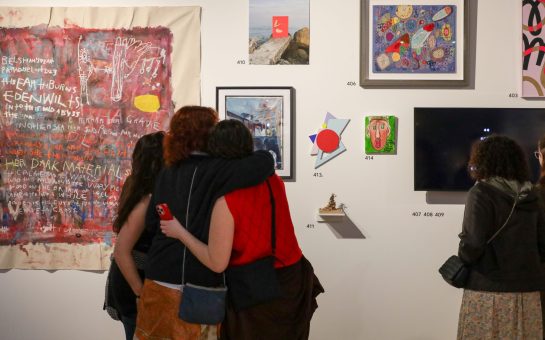Synthetic hair can be toxic, according to new data.
Leading brands of the artificial fibers have recently been added to a growing list of damaging products and chemical treatments that have proven to be toxic to the women who choose them.
The hair is made of plastic fibres and used in protective styles such as braids, weaves, or wigs popular among Black women for curly or coily afro hair.
These styles are as beautiful as they are convenient – time-saving investments, some of which can be worn for eight weeks or more.
A Consumer Reports study from February this year confirmed the presence of volatile organic compounds (VOCs) in ten of the most popular braiding hair brands.
This is not new information for some – YouTube is flooded with personal stories uploaded by women who have experienced the synthetic itch – which for some can present as hives and scalp inflammation.
It begs the question, what are Black women doing to protect themselves?
A history of chemicals
From the ripe age of five years old, I have vivid memories of my mom anxiously checking my eyesight after each bimonthly application of a chemical relaxer.
They are still sold in the same box even now – emblazoned with smiling Black children with sleek hairstyles for the reasonable price of around $5.00 (£3.70), with oddly few price adjustments for inflation.
Written in small print on the side if the box: “Keep away from eyes. Can cause blindness, skin and scalp burns, hair loss and eye injury.”
It had become a ritual – me pressing a towel desperately against my eyes with my head hanging over the tub while my mom paused rinsing out the vivid pink neutralising shampoo to anxiously check again and again that I could still see.
When I was born with afro hair, she saw its magic – but also felt overwhelmed by not knowing how to care for something so different from her own experience.
Styles like relaxers made hair, for some, more ‘manageable’ – and provided relief from the pressure and potential hair discrimination in the workplace.
However applying chemicals on the largest organ of the body – the skin – could never end well.
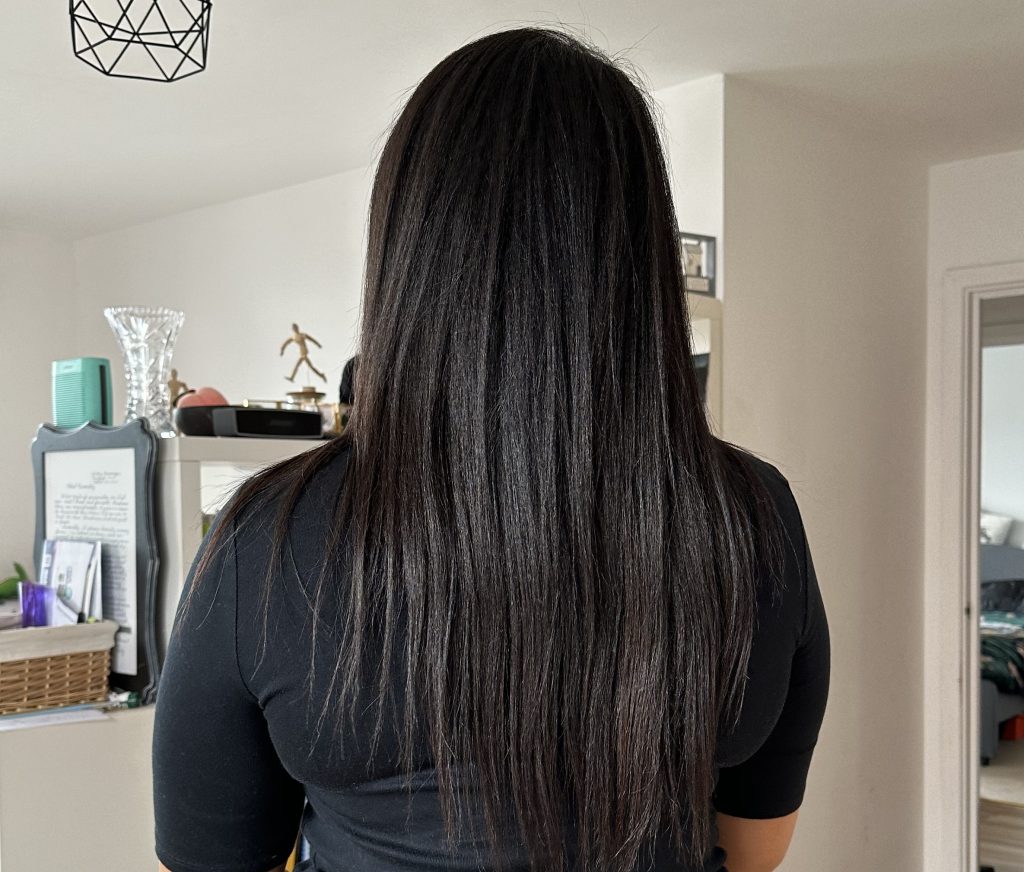
A 2022 National Institute of Environmental Health Sciences study found that perms increased the risk of uterine cancer. The study followed 33,497 US women between the ages of 35 and 74 for 11 years and assessed their cancer risks.
For women who used hair straightening products frequently – more than four times a year – their cancer risk more than doubled- leading to a volley of lawsuits.
The natural hair movement was already gaining traction in the 2000s and 2010s, with many Black women embracing their natural textures for cultural and personal reasons.
The movement gained popularity in the ’60s and made a comeback in the 2000s, giving women the freedom to reject the pressure to chemically straighten their hair to fit Eurocentric beauty standards.
There are benefits to having natural hair tucked away in a protective style.
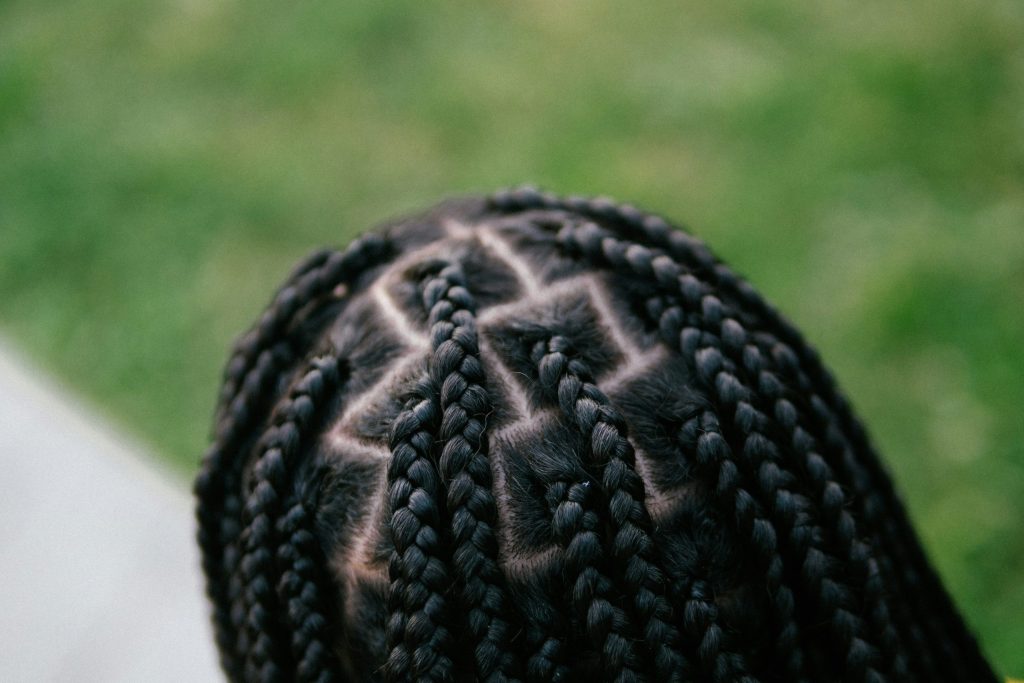
Protective styles reduce hair manipulation, environmental damage, and help retain length as a result.
There are a host of great reasons to embrace the array of creative and unique looks which can be created.
For years, women have embraced these styles while unknowingly exposing themselves to products that did more damage than previously known.
A market of synthetic hair
You can obtain a packet of braiding hair for as little as a few pounds.
Braiding hair comes in synthetic, human, and blends of both, which can be twisted, braided, sewn and glued into natural hair.
Human hair is less processed, and arguably the healthier option – but this comes with a price tag of £39–£156 per pack with most styles requiring two to three packs.
Synthetic hair is the more affordable option, with leading brands like Toyokalon and Kanekalon often becoming proprietary eponyms used to refer to synthetic hair in general.
Internet wisdom from the mid 2010s encouraged soaking the fake hair in an apple cider vinegar solution followed by shampoo and conditioner.
No formal scientific study has proven the effectiveness of apple cider vinegar soaks for the removal of the irritating (and toxic) alkaline coating.
Now that it has been proven to contain lead, carcinogens, and VOCs such as acetone, what are women doing?
Which salon does what? Customers left confused
It can be a difficult search to find an afro hair salon which provides exactly what you are looking for.
I personally have spent weeks stressing over who was going to apply my next chemical relaxers, and jumping from salon to salon. Was the next one going to burn my scalp? Or charge me extra for having long hair?
There is plenty of choice for braiding shops in the North West often also offering chemical services and various treatments.
It is more difficult to find ones clearly equipped to cut, shape and style natural hair.
Some salons that cater to curly hair are still marketed to favour looser curl patterns presented more in other ethnicities.
These stylists can charge more based on the curl pattern and texture – justifying this by saying that thicker or coarser or curlier hair requires more product.
Still, finding a salon which sells itself as an expert on natural Black hair can be hard to come by in some areas.
Curls can be a learning curve for the possessor and for many stylists – some curls are porous and take in moisture more easily; some are tightly packed making it more challenging for moisture to penetrate.
Curly and coily hair can shrink when it dries, meaning the right haircut is crucial.
This is changing with a June 2021 National Occupational Standards review explicitly mandating the inclusion of afro and textured hair under the core curriculum for all new hairdressers.
A 2022 survey showed the striking access inequality and salon skill shortage facing Black women: just 1% of salons in the UK were able to cater to afro textured hair.
According to salon management website Treatwell at the time the data was collected in 2022 the North West had 5040 salons with just 0.5% able to care for afro and textured hair.
Curl specialists may fill this gap in the market offering a service which is equal parts coach and stylist.
A market for healthier hair
Chloé is the owner and stylist at CurlyGalChlo hair salon located near Manchester City Centre.
Chloé uses the title of a Healthy Haircare Specialist – and teaches women to care for their curls with the least amount of products.
Her services offer solutions for what she calls the ‘curly hair journey’, and she documented her own process on social media.
“We use non-toxic hair products in the salon and work closely with the brands we use to have a full understanding of their product ingredients,” the curl expert said.
She said that many of her clients have chosen her salon as a way to learn about their natural hair after years of relaxing.
Chloé added: “It is possible to balance style, safety, and hair health – but there is a mindset shift involved as well as an investment of time and money.
“Products with higher toxicity are often cheaper to make – they’re less concentrated and so you get used to using more to reap any kind of benefit.
The natural-hair care expert is also the founder of a brand which was created as an answer to these concerns.
ODYSSEY BOX UK sells products with minimal preservatives and ingredients.
These products come with a price tag but are more efficient.
“Cleaner products are often more potent and dearer and less is needed. You’ll rely more on your techniques to get the most out of them.”
An emphasis on education and access
For those women who are looking to embrace their natural hair, a curl specialist can be hard to come by.
Akua, 49, is an arts producer at a hospital.
From Cambridgeshire, she said she can think of one afro salon located ‘down an alley’ in the town centre in a town with an excess of hairdressers marketed toward Eurocentric hair.
She said: “The menu of things on offer tends to lean sort of toward chemical based or extension based offers like relaxing or braided extensions.
Akua had these styles in the past but knew she wanted to be natural and to find a hairdresser to help her without taking the “your hair would look so much better if it was straighter” approach.
The arts producer spoke of the challenge of finding a salon that could be trusted to cut her curly hair in a flattering way.
“An awful lot of hairdressers that I’ve gone to – I’ve not had the best experience with haircuts.
“With natural hair, I’ve learnt that finding the right hair shape helps. So ultimately, if I can find a hairdresser that is comfortable with cutting, that’s great.”
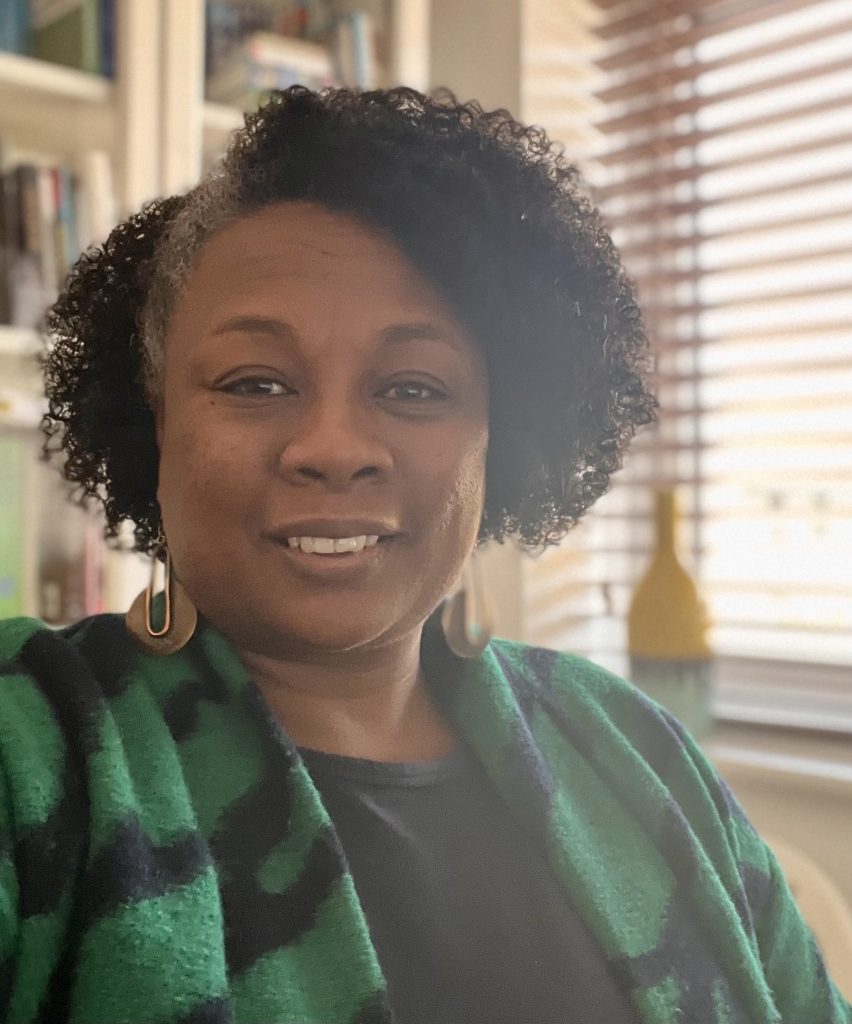
She found Fola, a curl expert based in Hackney, and travelled from her home in Cambridgeshire to London for the service.
“She taught me how to wash, and apply products to my hair and I still use two or three of these products to this day.
“She sort of made natural hair feel accessible and attainable – workable in a way that other hairdressers and products didn’t seem to encourage.”
She said that she has been able to afford to invest in higher-quality products and travel to stylists who can be trusted.
In her experience, where she would normally purchase cheaper products almost monthly, she now has to replace those she was recommended by an expert every three months.
Hannah, 21, is a student in London.
She said that she has worn synthetic hairstyles, but has never experienced an allergic reaction.
“I used to relax my hair which caused some reactions a few times such as itching, and hair breakage. I heard about this news [chemical relaxer toxicity] a few years ago and for a while I did try natural styles due to fear.”
She mostly uses synthetic hair mixed with human hair as she associated most of her previous problems with cheaper products.
The 21-year-old said the news about synthetic hair toxicity hasn’t particularly impacted the way she does her hair. But it has changed what she uses.
“I try to style it less frequently. I tend to keep the same hairstyles and use the same products each time when possible – as I have products from Africa which I prefer using.”
The student shared that she has felt the pressure to use chemical products living in an area which was predominantly caucasian.
“I have type 4c hair, and for my sister with 3b hair it has been a lot easier for her to just wear it natural with less product usage.”
Hannah is hesitant to embrace a completely natural style because she is concerned about the requirements of a tighter curl pattern, as well as cost and access to products.
“Finding products to help manage mine is a lot harder, and quite expensive.
“I think the natural hair movement has gone very well for some hair types – but where people live and have access to hair products can help. It’s a lot easier for some.”
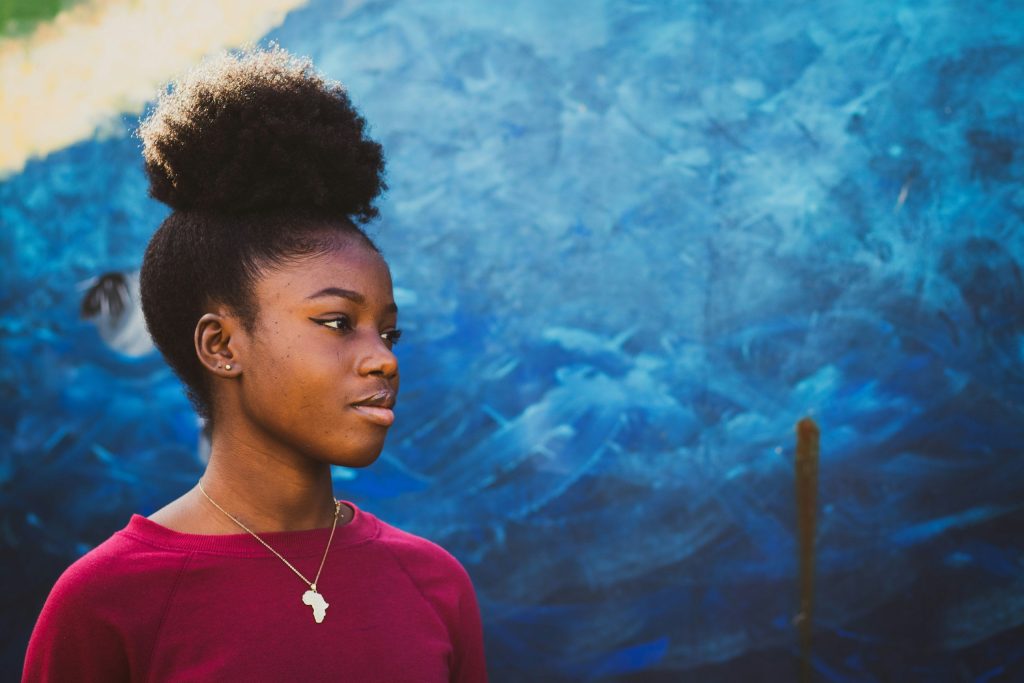
The future
Access to experts on curly and coily hair can come at a cost but paying for cheap products will cost much more in the end.
Black hair care is an estimated $2.51 billion industry.
Black women spend nine times more on ethnic hair products than non-Black consumers, according to the National Institutes of Health.
There is no such movement yet to regulate the manufacturers of synthetic hair, and chemical relaxers are still being sold on store shelves.
Free time, the cost, as well as access, cause women to make critical choices about what they do or don’t do with their time.
This is compounded by the hair discrimination and sometimes lack of knowledge about the best routine to take care of afro hair which is as nuanced as it is versatile.
What is clear is women simply want to wear their hair in the way they choose – and ideally without the risk.
Feature photo by Anthony McKissic on Unsplash
